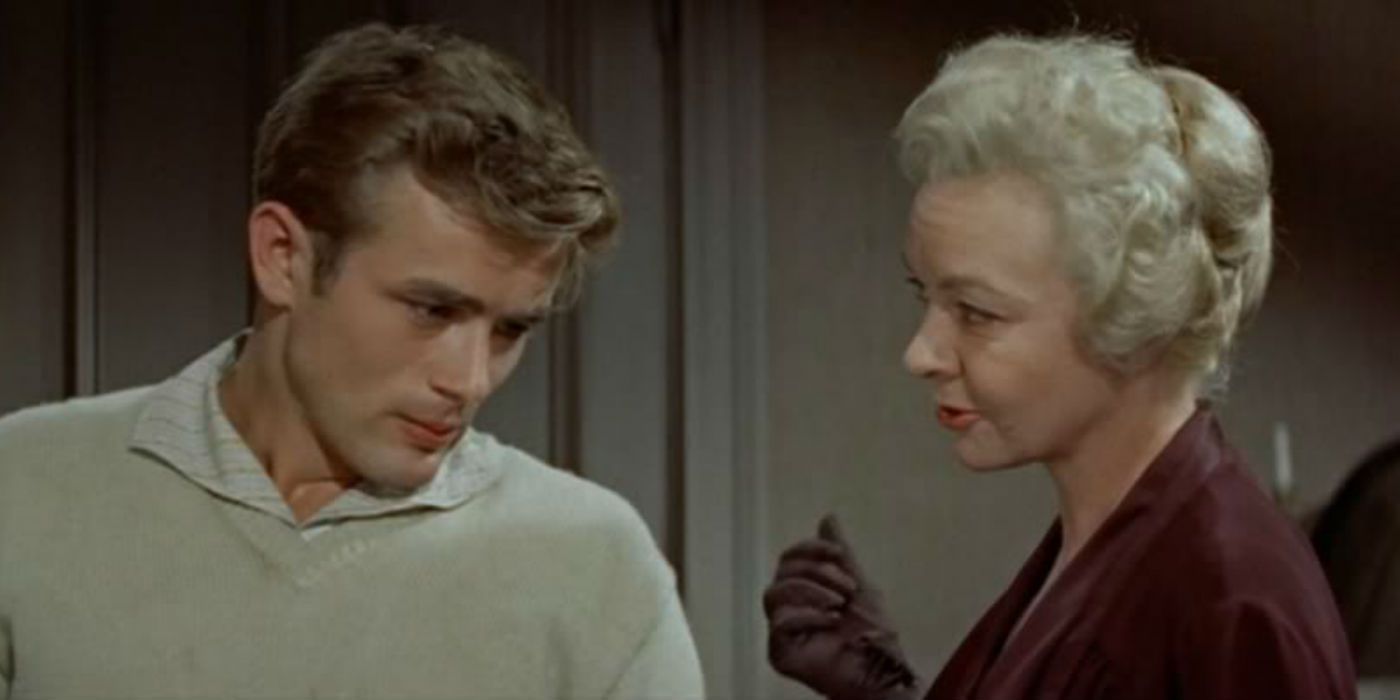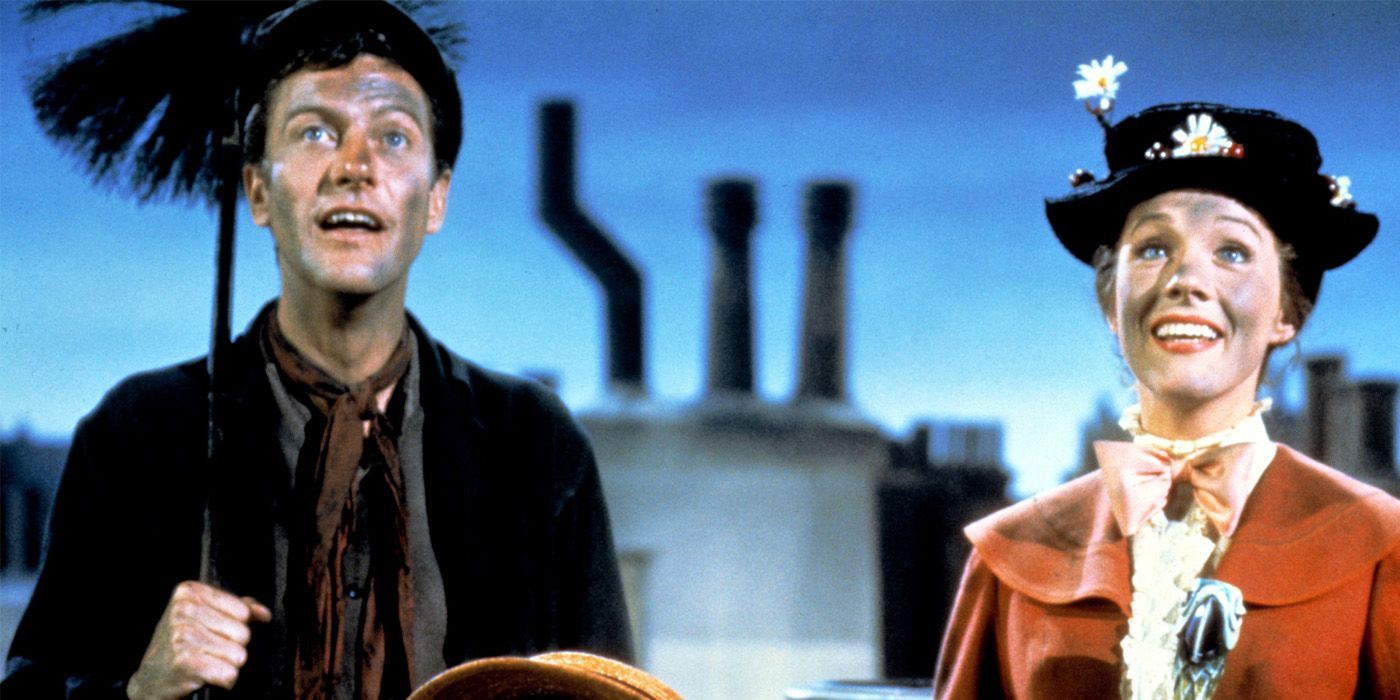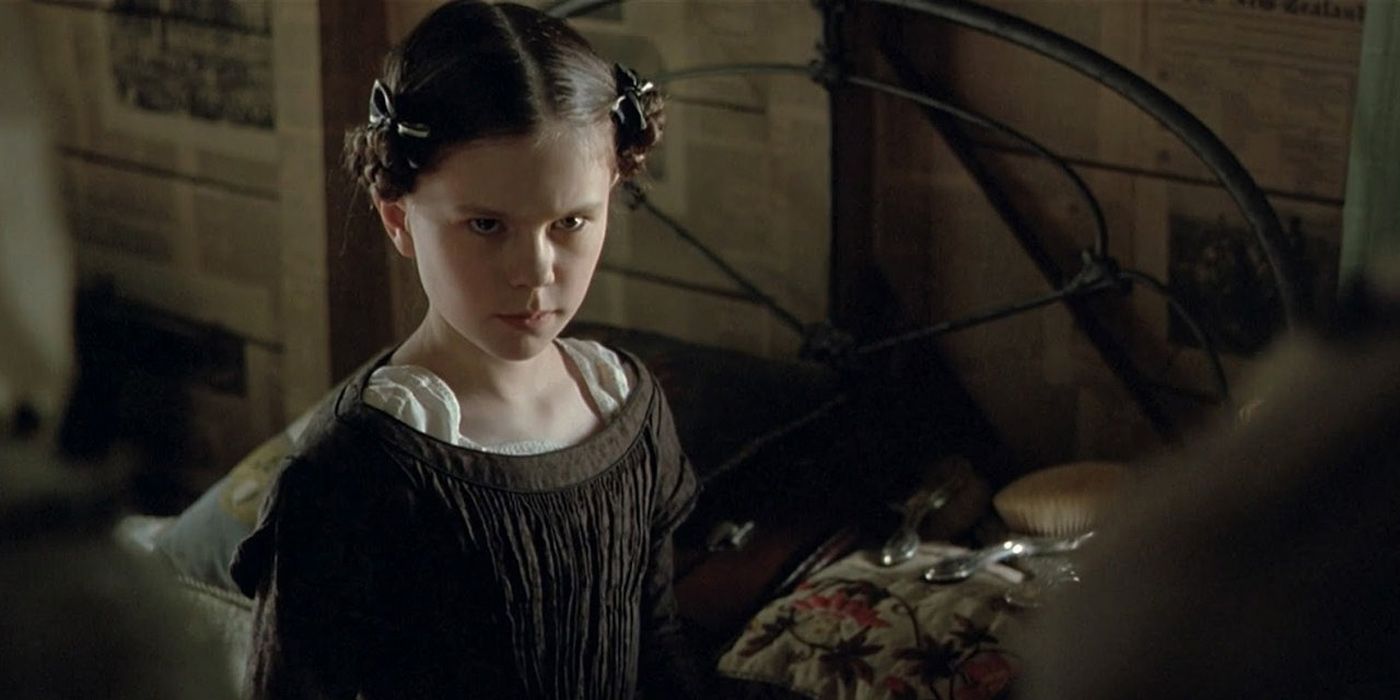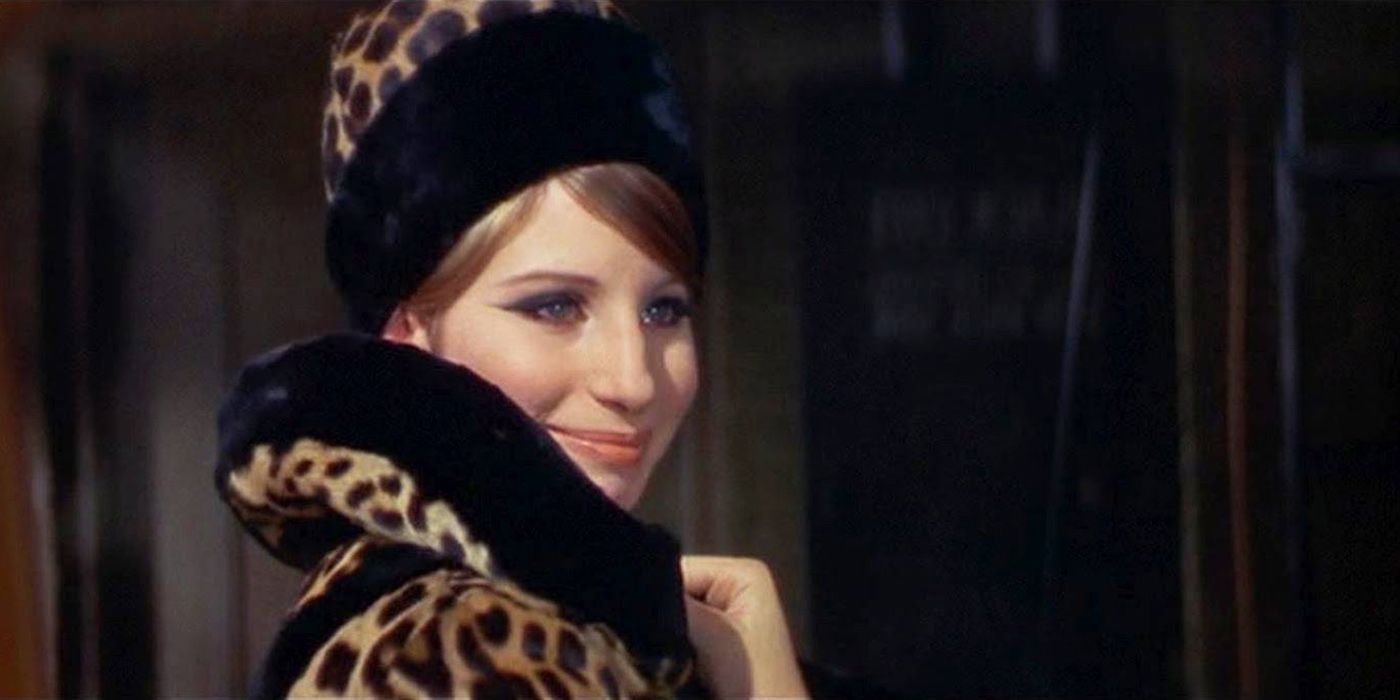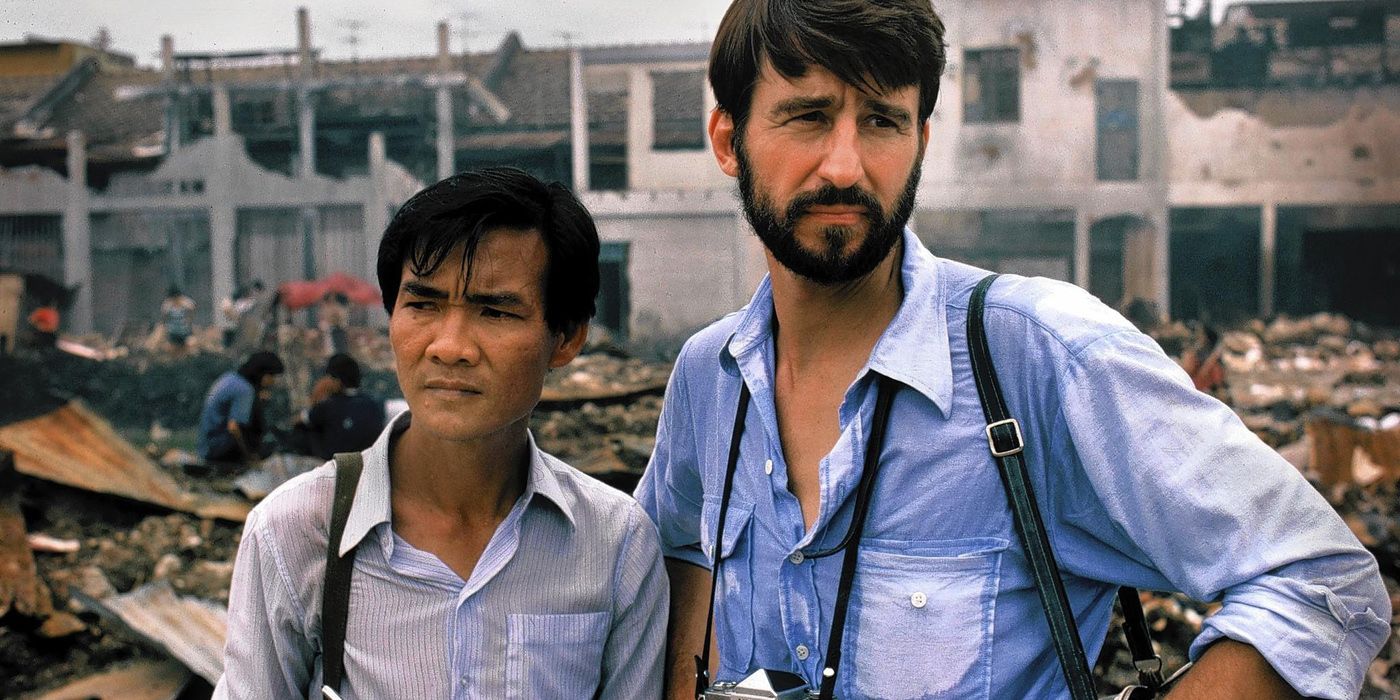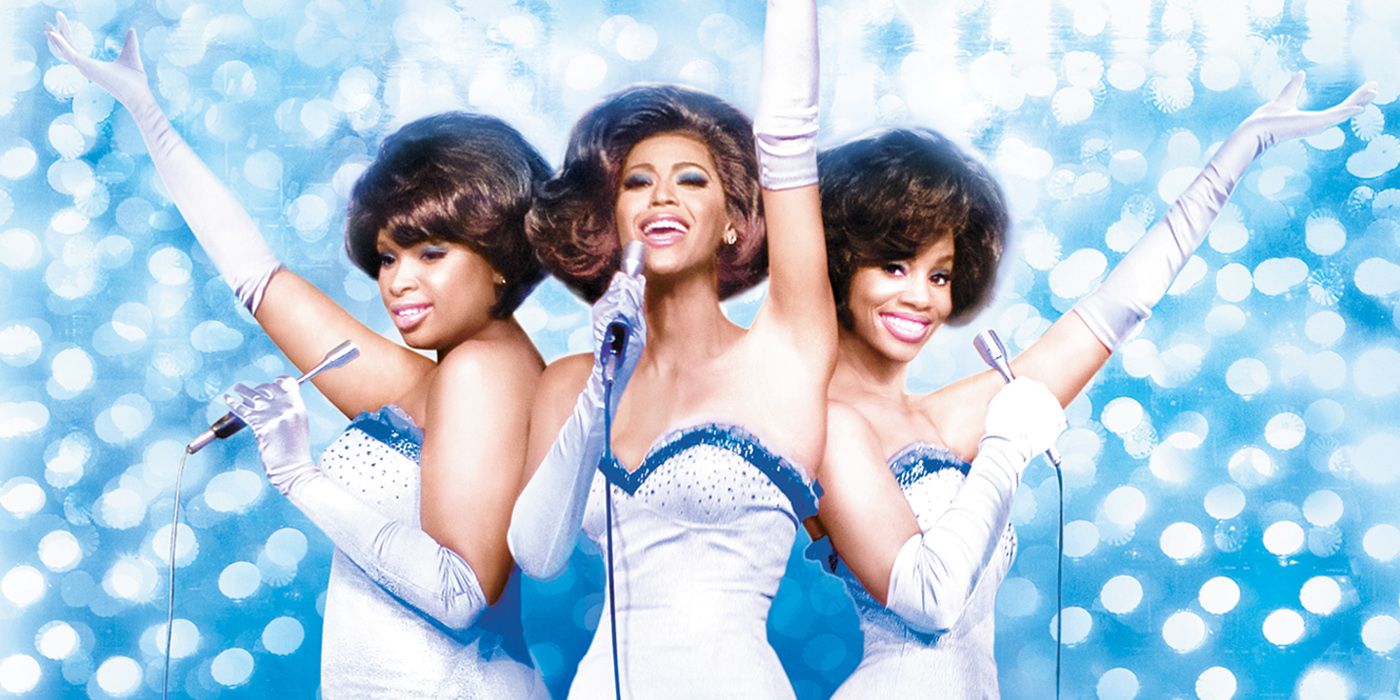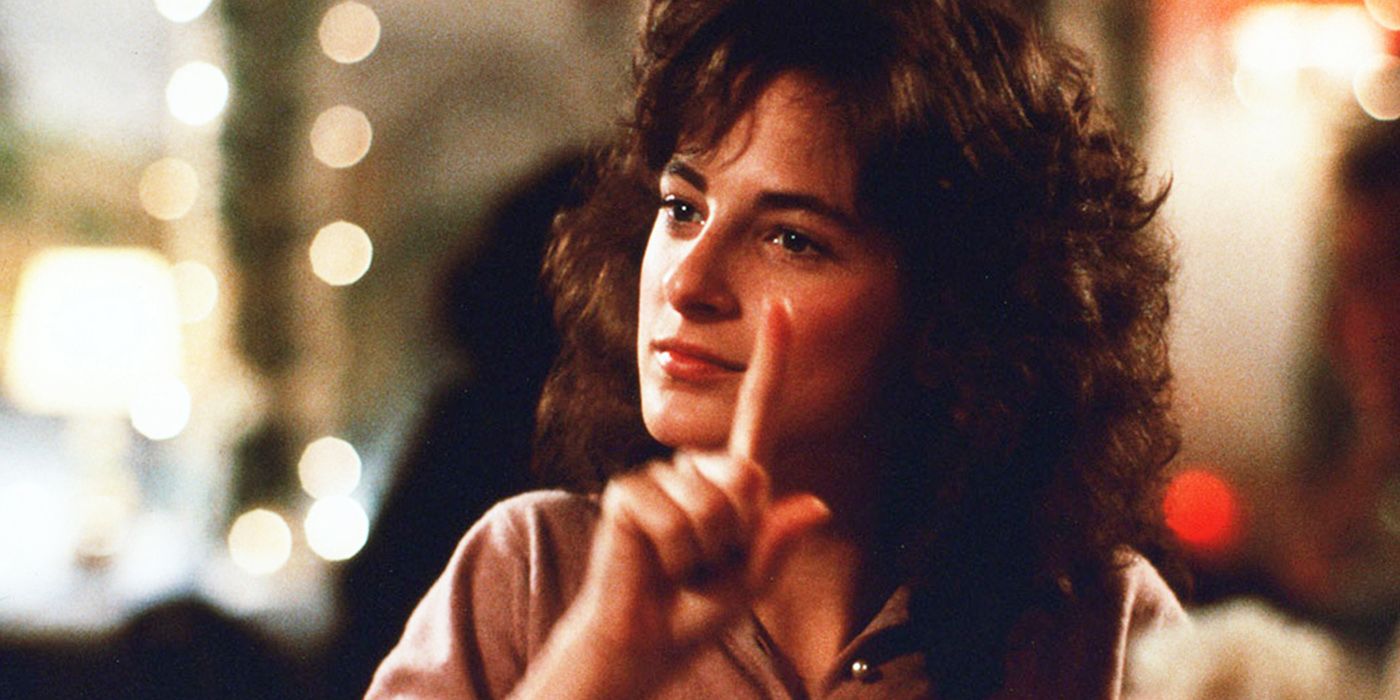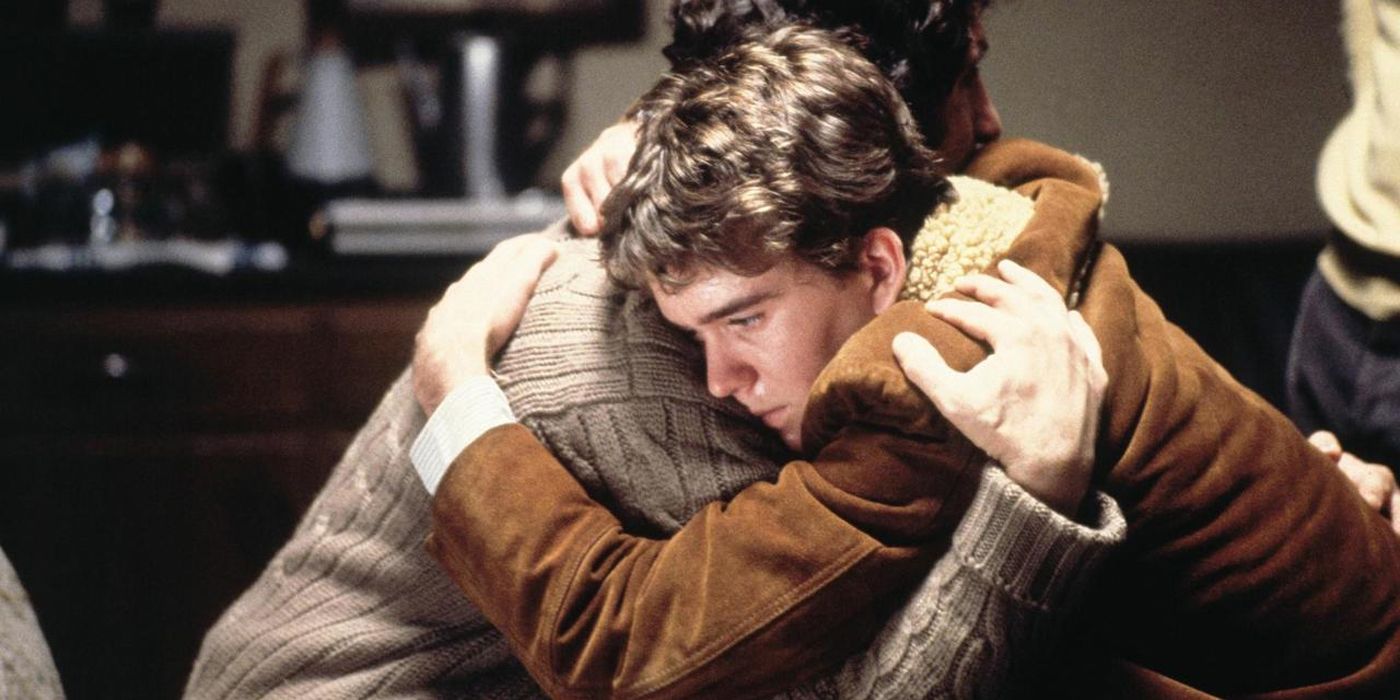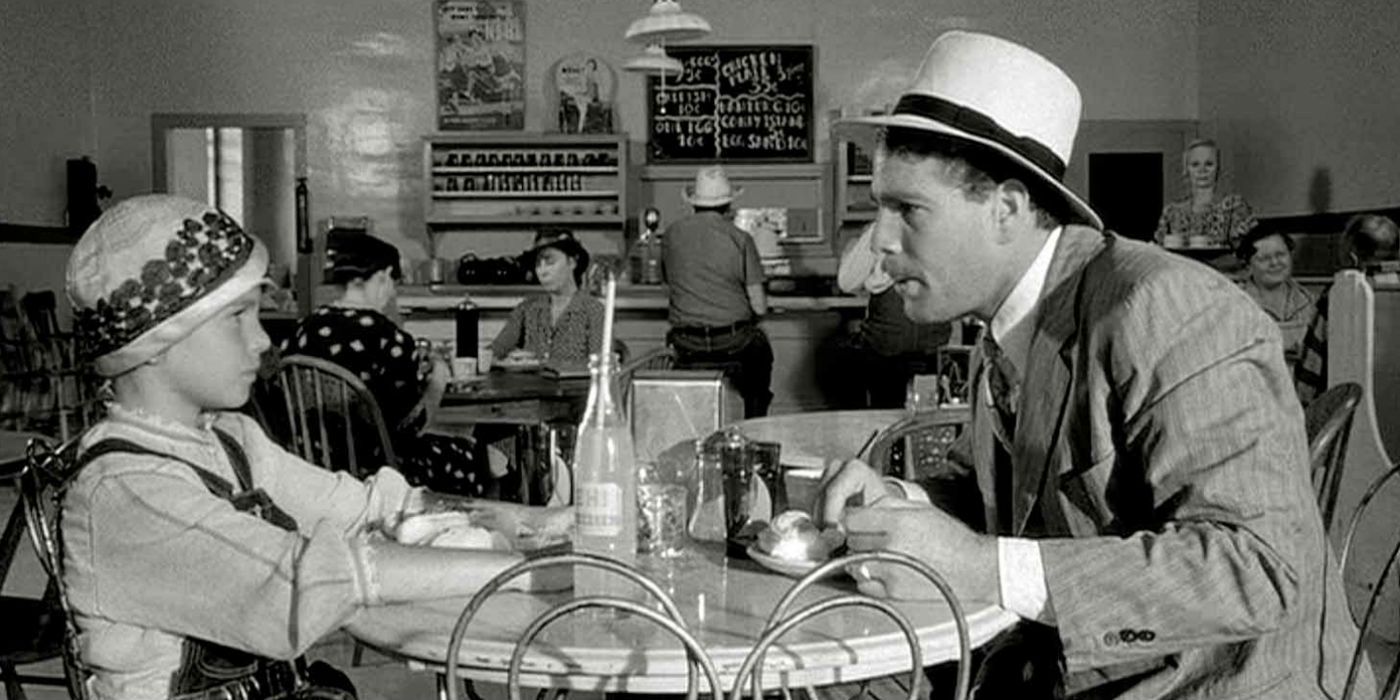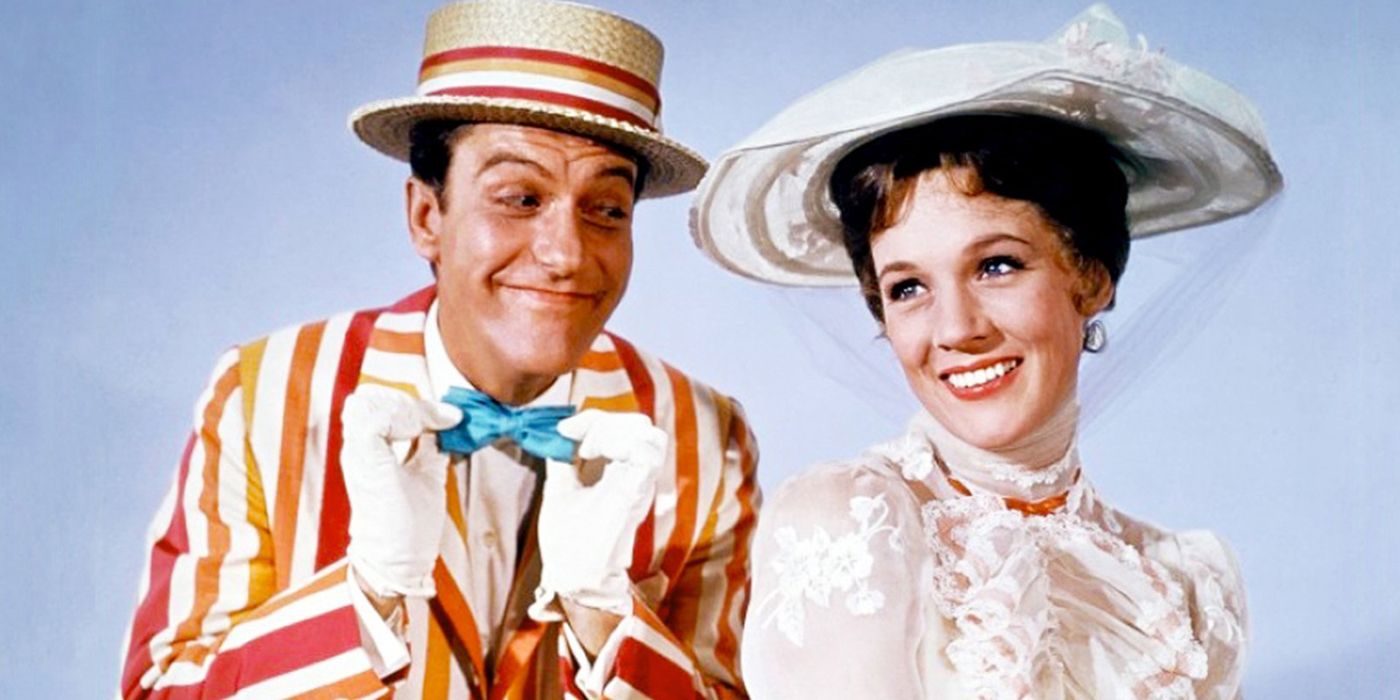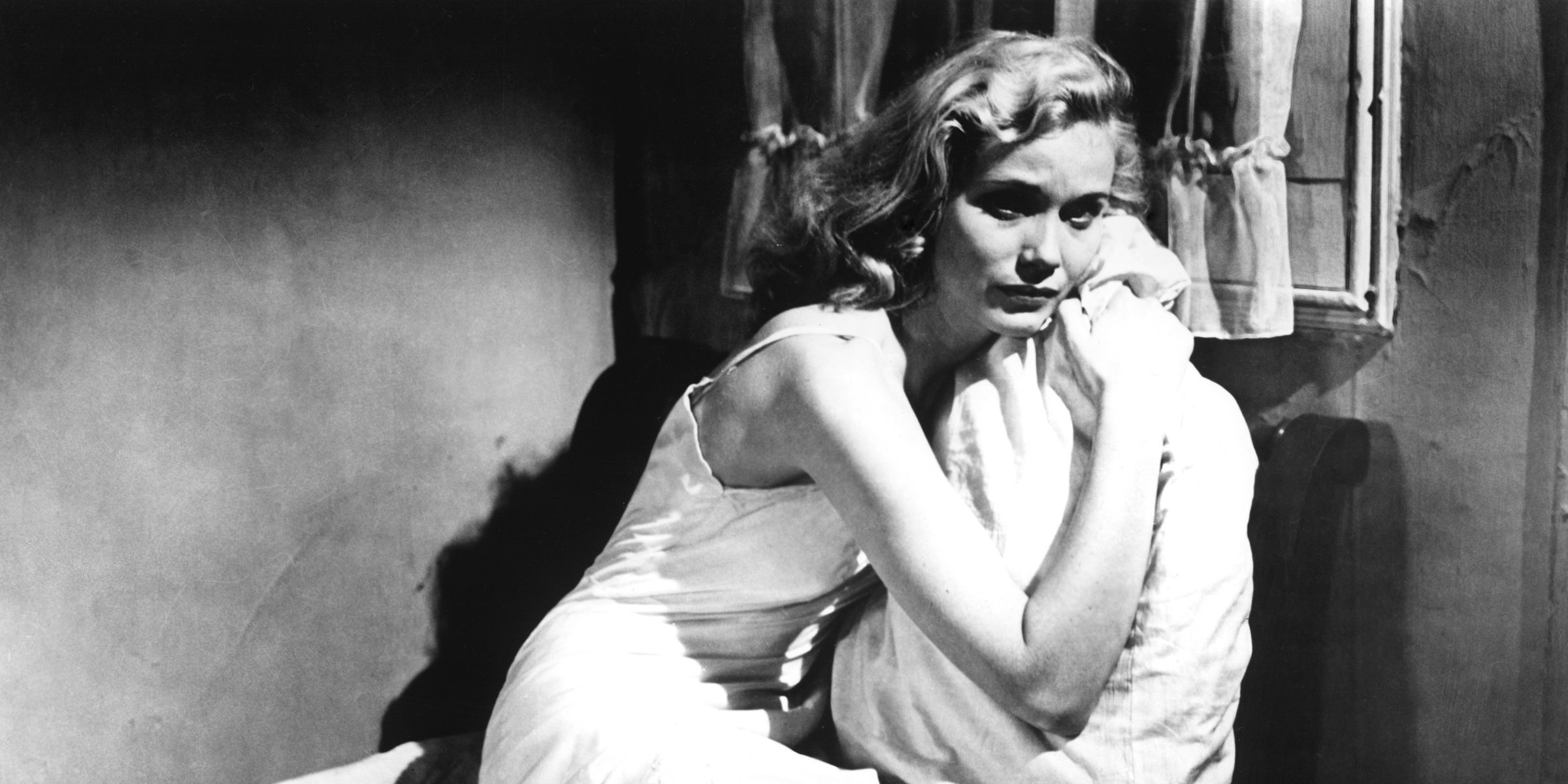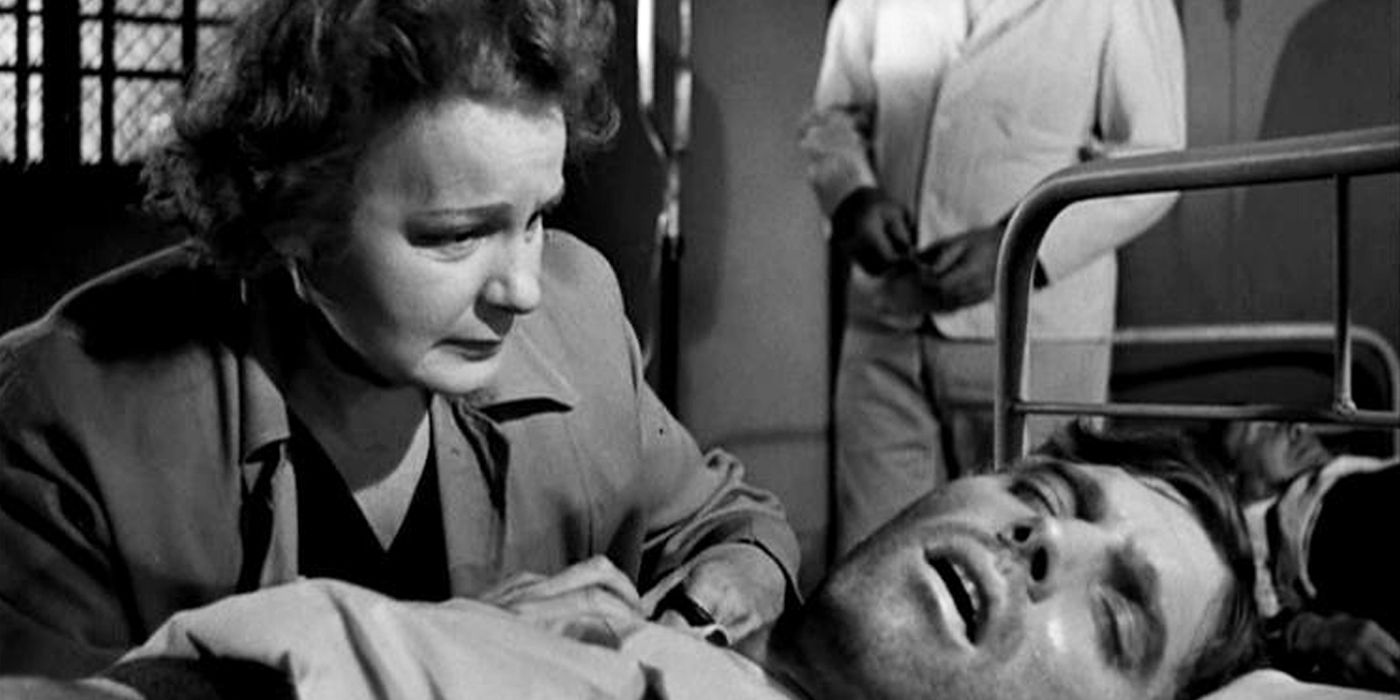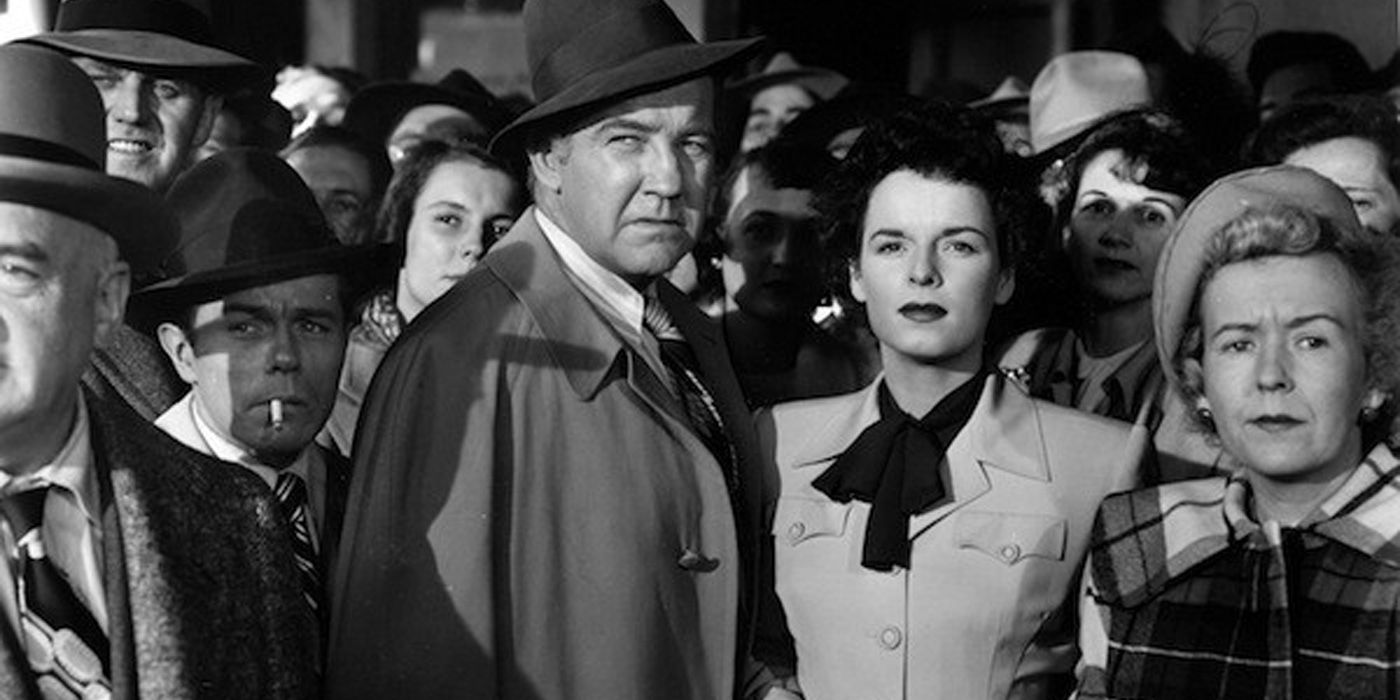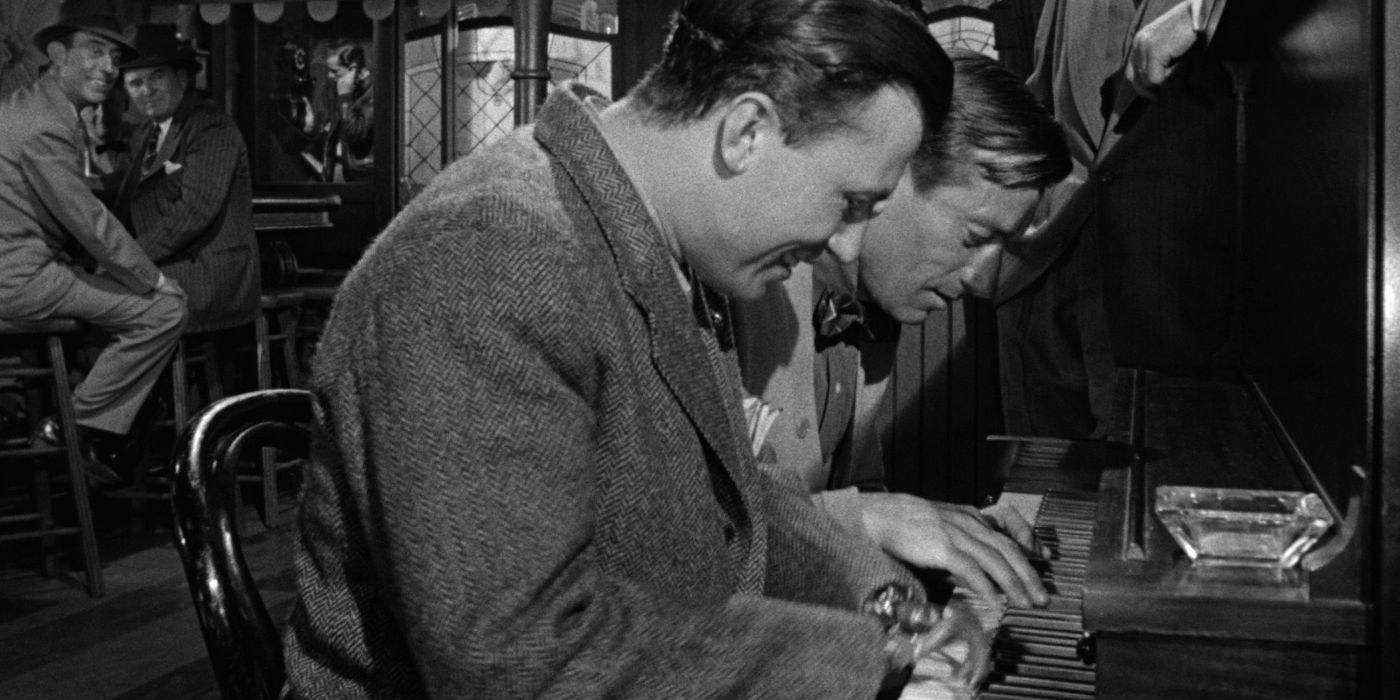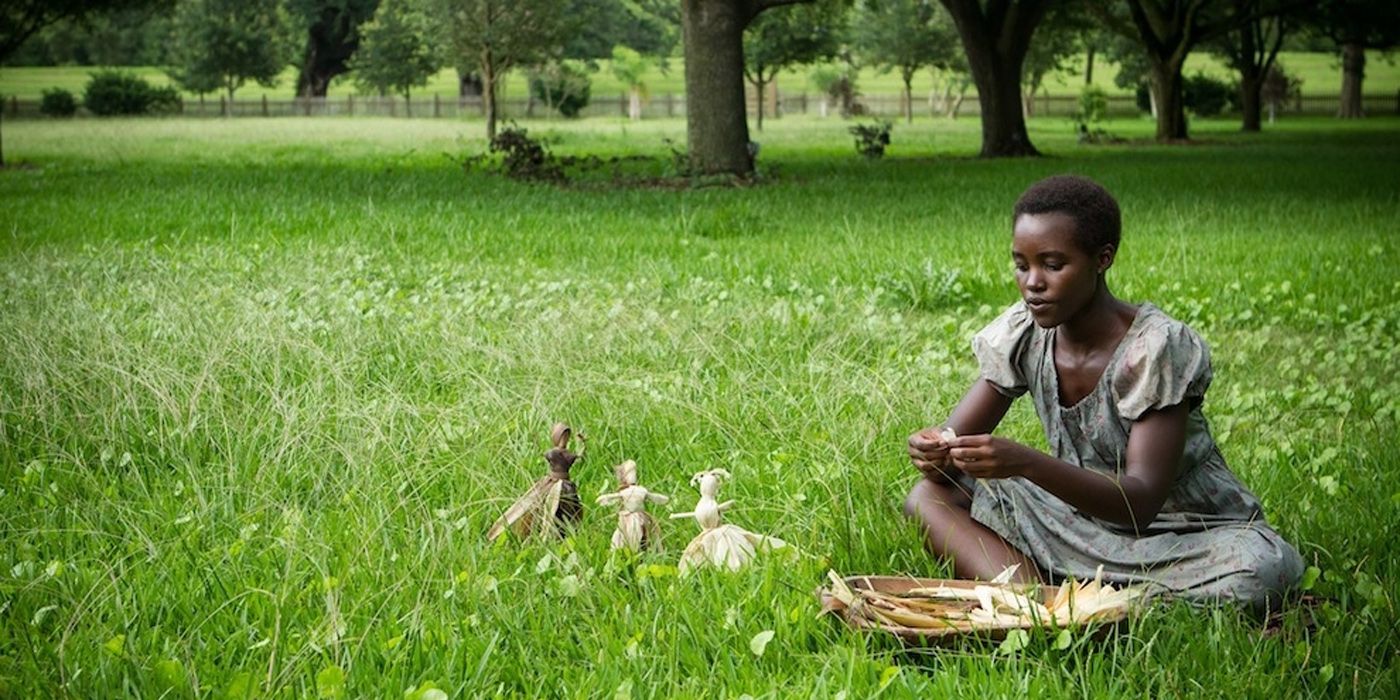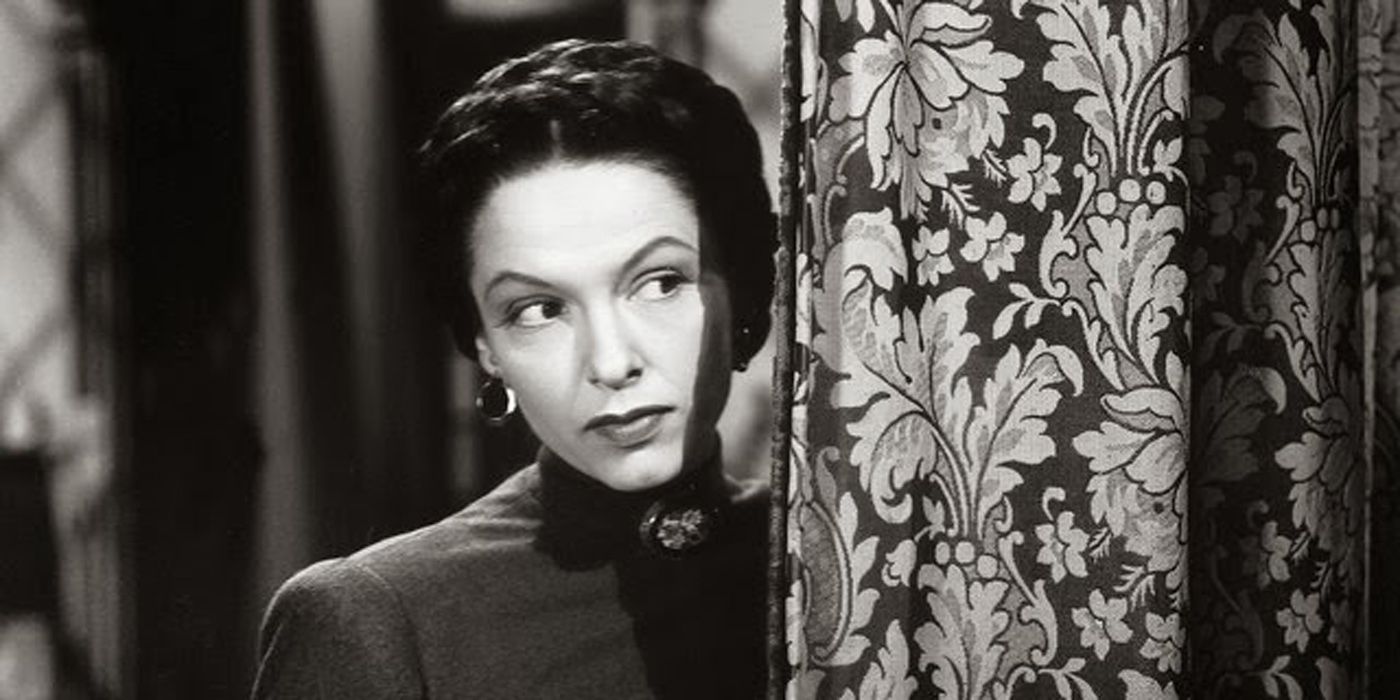It's the ultimate prize for any movie actor and the highest honor in the business, awarded only to those rarefied few at the very pinnacle of their profession. The Academy Award.
It's managed to elude some of the greatest actors of all time: Glenn Close, Gary Oldman, Ed Harris, Albert Finney—all have an empty space on their mantlepiece where that little golden statuette should sit.
Undoubtedly politics, both real and Hollywood in nature, have been known to play their part who the Oscar goes to. And as De Niro says, "The talent's in the choices"— in finding that perfect role to showcase an actor's unique talents.
But there's no escaping the fact that winning the industry's biggest award is often the culmination of years of sacrifice, dedication to the craft, and the deliberate honing of the artist's skills to capture the very essence of their subject.
Or, you could do it the other way and just bag it on your first go, like these guys. Here are 15 Actors Who Won An Oscar For Their First Movies.
15. Anna Paquin - The Piano (1993)
The second youngest Oscar winner in history and the first New Zealander ever to win an acting Oscar, Anna Paquin is also that rarest of Hollywood rarities: a child star who didn't subsequently collapse in on herself. Her performance in The Piano has been subject to sniffy debate since her Best Supporting Actress win, usually centered around the "not paying her dues" argument; her only previous acting role was playing a skunk in a school play.
But it's hard to deny the natural chemistry she shared with Holly Hunter in Jane Campion's tale of a mute Scottish woman sold into an arranged marriage. Paquin's performance bested clear favourite Winona Ryder (The Age of Innocence) as well as Rosie Perez, Emma Thompson (Fearless and In the Name of the Father), and even Hunter herself for The Firm.
Whether or not you think she deserved the win, it did give us one of the big night's most heart-warming moments: an 11-year old Paquin hyperventilating, giggling, and gulping through a full 21 seconds of speechlessness on the podium. After finally managing to squeak out her thanks to co-stars and the Academy, she skipped off back to her seat, leaving announcer Gene Hackman to escort himself offstage.
14. Barbra Streisand - Funny Girl (1968)
Already an established musical star before she dipped her toes into movie acting with Funny Girl, Barbra Streisand has gone on to win just about every award in existence, including 10 Grammys, 5 Emmys, and 9 Golden Globes. She also picked up a second Oscar in 1977 for A Star Is Born. For her first win, she tied for Best Actress with Katherine Hepburn in A Lion In Winter, the only time the Academy wasn't able to make its mind up.
Funny Girl sees Streisand bring her Broadway performance to the screen, playing Fanny Brice—a star with the Ziegfeld Follies. Seduced by charming gambler Nicky Arnstein, (Omar Sharif) the movie traces her story in flashback from wide-eyed teenager to shining star.
While the role of Arnstein was touted around Hollywood, looking for its perfect fit—with Marlon Brando, Sean Connery, Gregory Peck, and James Garner all mentioned at one time or another—there was never any doubt who would be bringing Brice to life. With her unconventional looks and impeccable comic timing, Streisand was so made for the part that both director William Wyler and producer Ray Stark refused to be involved unless she was the lead. Funny Girl now sits at #16 on AFI's list of all time greatest musicals
13. Haing S. Ngor - The Killing Fields (1985)
The Killing Fields is a heartbreaking example of life imitating art. The story of Dith Pran, a Cambodian photojournalist during the Khmer Rouge genocide, is so closely mirrored by Ngor's own life that it's hard to know where one stops and the other begins. Both found themselves imprisoned in concentration camps by the regime, where they were subjected to starvation and torture. Ngor, a surgeon and gynaecologist, even had to stand by and watch his wife and baby die during childbirth in the camp rather than risk helping, due to the execution of all intellectuals by Pol Pot's forces.
Eventually able to escape after the invasion by Vietnam, Ngor made it to America where he was spotted at a Cambodian wedding and offered the role of Pran. He accepted the part in order to keep his promise to his wife, to tell Cambodia's story to the world.
His harrowing yet inspiring performance secured him a Best Supporting Actor Oscar, a Golden Globe, and two BAFTAs and he went on to enjoy a successful acting career. Tragically, in 1996, he was gunned down outside his home in Los Angeles by three members of street gang The Oriental Lazy Boyz. At the trial, it was suggested that it was a political killing by Khmer Rouge sympathisers but there was little evidence to support the claim. The more likely reason seems to be his refusal to hand over a gold locket containing a picture of his wife My-Huoy, which he wore around his neck.
12. Jennifer Hudson - Dreamgirls (2006)
It's safe to say that of all the people who've finished in 7th place on American Idol, Jennifer Hudson has faired the best. As Effie White in Dreamgirls, she gives the performance of a genuine star. She exudes vulnerability and innocence and still manages to outshine the rest of the cast. Yes, even Beyonce.
Loosely based around the rise of Motown and The Supremes, the story follows Effie as the lead singer of girl group The Dreamettes. Originally a backing group to James "Thunder" Early (Eddie Murphy at his finest) they are soon reimagined by their manager Curtis as The Dreams, but with the more eye-friendly Deena (Beyonce) promoted to lead singer.
Whoever decided that casting a virtual unknown like Hudson to play the Cinderella of this tale was worth the risk, take a bow. Her performance is nothing short of astounding and her full-throated, roof-raising rendition of "And I'm Telling You I'm Not Going" should have been enough to win her the Oscar on its own. Adding a Golden Globe, BAFTA, and SAG Award to her Best Supporting Actress haul probably took the sting out of getting the boot from Simon Cowell.
11. Marlee Matlin - Children Of A Lesser God (1986)
The only deaf performer to ever win an acting Oscar, Marlee Matlin is also the youngest performer to take home the Best Actress gong. Not only that, she's the only one on this list to have been discovered by Henry Winkler (yes, that one), who saw her perform with the ICODA (International Center On Deafness And The Arts) children's theater.
In Children of a Lesser God, the 21-year-old Matlin played Sarah Norman, a young deaf woman terrified of the outside world and working as a cleaner in a school for the hearing impaired. When a new teacher arrives in the shape of William Hurt (nominated for Best Actor, and rightly so), the two start a love affair. As Hurt attempts to draw Sarah out of her shell and get her to use her voice, the pair clash.
Without speech, Matlin is forced to act with just gestures and expression. She is able to convey incredible depth with just her eyes. Playing against William Hurt, who is rarely less than exceptional, she displays a real toughness behind her vulnerability, lifting what could have been an overly sentimental schmaltz-fest to a scintillating performance.
Today, Matlin has a slew of acting awards and nominations to her credit and remains actively involved in a number of charitable organizations.
10. Timothy Hutton - Ordinary People (1980)
Okay, let's stay on topic here. This is the debut Oscar winners post, not the "how the @!$% did Ordinary People beat Raging Bull to best picture?" post. While we could argue that all day, Ordinary People is still an incredible character study and exploration of mental illness.
Conrad, Timothy Hutton's character, is crippled with survivor's guilt over the death of his brother in a boating accident. Eventually, it leads him into a failed suicide attempt and he spends four months in a psychiatric hospital. For us, this is where the movie starts. His mother (Mary Tyler Moore, nominated for Best Actress) is struggling to come to terms with the stigma surrounding her son. The father (Donald Sutherland) blames his own parenting for Conrad's attempt on his own life. Into this happy family dynamic comes psychiatrist Judd Hirsch, also nominated for Best Supporting Actor, who eventually starts to get through to Conrad.
While the plot itself is paper thin, it's actually the performances here that elevate this movie to its Best Picture winning status. Under Robert Redford's debut guidance (winner, Best Director), Hutton displays heartbreaking levels of tortured guilt and anger in an immensely moving performance that netted him a Best Supporting Actor award.
Although Hutton's career has never returned to its early heights, he has continued to work in the industry, most notably in Taps and The Falcon and the Snowman.
9. Tatum O'Neal - Paper Moon (1973)
Still the youngest actor to win an Oscar, Tatum O'Neal was just 10 when she picked up the award for her role in Paper Moon. Set in Depression-era Kansas, it tells the story of the relationship between 9-year old Addie Loggins and her maybe-father, con man Moses Pray (played by Tatum's real-life father, Ryan O'Neal). After agreeing to deliver the newly orphaned child to her aunt, Moses quickly spots Addie's talents for grifting and the two form a partnership.
The movie is a beautiful blend of comedy and drama, exquisitely shot in black and white (with a little help from Orson Welles), and the two stars enjoy a chemistry that borders on the magical—the kind only a real father and daughter could have. O'Neal senior gives perhaps his best performance here, and has a special talent for the exasperated expression, while Tatum has a child's bravery—she's charming, feisty, and funny without ever descending into sentimentality. She truly deserved the Best Supporting Actress Oscar, even holding her own against Madeline Kahn, who never appeared in a movie whose spotlight she couldn't steal.
Tatum's personal life following the movie has been written about infinitely more than her professional work, with her well-reported relationship and addiction problems. Most recently she had a cameo role in screwball comedy She's Funny That Way, as well as appearing on the Hell's Kitchen reality show.
8. Julie Andrews - Mary Poppins (1964)
In perhaps the greatest injustice in Oscar history, Julie Andrews took home the Best Actress award for Mary Poppins, while Dick Van Dyke wasn't even nominated for his role as Bert, despite his flawless cockney accent. Gaw blimey, that's a rum 'un, and no mistake!
Andrews was already a hugely successful Broadway star, following a record-breaking run as Eliza Doolittle in My Fair Lady, but controversially lost out to Audrey Hepburn for the movie role. Initially having to turn down the part of the magical British nanny, as she was pregnant, Disney himself told her that production could wait until after she'd given birth.
The movie blends live action, animation, and some of the most recognizable songs the studio has ever produced, planting it firmly in the Classic Disney family. As Mary Poppins, Andrews descends from the sky on her umbrella, at the wish of the two Banks children. The indomitable but sweet-natured nanny charms the entire Banks household, especially their cold father, George (David Tomlinson).
Andrew's casting is spot on; no other actress at the time could have brought Mary Poppins to life. Her performance manages to be both dignified and heartwarming, and her singing is exquisite. It was the role that shaped her movie career, and as a dig during her Golden Globe acceptance speech, she even thanked Jack Warner for passing her over in My Fair Lady.
7. Eva Marie Saint - On The Waterfront (1954)
Eva Saint Marie starred in two of the greatest films of all time, and arguably could have taken home the Oscar for either. While a nomination for North By Northwest in 1959 was kept at bay by winner Simone Signoret, her debut performance as Edie Doyle in On The Waterfront couldn't be beaten. A Best Supporting Actress Oscar on your first attempt is impressive enough, but being able to stand your ground against Brando at his most demonically charismatic deserves special mention.
On the Waterfront centers around the extortion, violence, and racketeering of the unions that ran the docks in Hoboken, New Jersey during the '40s and '50s. Saint plays the sister of a dockworker murdered by union boss Johnny Friendly (Lee J. Cobb) to prevent his testimony to the Crime Commission. Brando is the man who unwittingly lures him to his death. As the two grow closer, Brando is tormented by his role in the killing and eventually confesses.
It's a gritty and highly influential movie, very much from the film-noir school. Saint's presence gives it a much needed tenderness and warmth. She's the ideal foil for Brando, beautiful and sweet, but acting as his conscience throughout.
Following the movie, Saint chose to limit the amount of film work she took on so she could concentrate on family life instead. She has been married to director Jeffrey Hayden since 1951. As well as North by Northwest, she took roles in, amongst others, Exodus and Grand Prix.
6. Jo Van Fleet - East Of Eden (1955)
One of only three movies James Dean ever starred in, and the only one released by the time of his death, East Of Eden is a Cain and Abel story adapted from John Steinbeck's epic novel. Dean competes against his brother for the affections of their highly religious father, at the same time trying to reconnect with his mother, played by Jo Van Fleet. She's long since had enough of her husband's sermonising and done the sensible thing and gone off to run a brothel.
Another debut Oscar winner recruited from a successful stage career, Van Fleet is a powerful presence in the movie, even with her relatively small amount of screen time. From the same Method school of acting as James Dean himself, she portrays her character as a woman made hard and bitter by events, but not unreachable. Her scenes with Dean are magnetic and earned her a Best Supporting Actress win.
Following East of Eden, Van Fleet's career ultimately disappointed her. Movie roles were sporadic, although she played Paul Newman's mother in Cool Hand Luke and had several TV roles, as well as returning to the stage. She died in New York in 1996.
5. Shirley Booth - Come Back Little Sheba (1952)
A three-time Tony award winning stage actress, Shirley Booth only appeared in five movies in a 50 year career. Her debut in Come Back Little Sheba, reprising the stage role that won her the second Tony, is the perfect demonstration of just how versatile an actress she was. Her performance as Lola Delaney—a lost, pathetic woman, trapped in a loveless and childless marriage to an alcoholic husband (Burt Lancaster)—is one of the great tearjerkers.
Booth was a magnificent actress and a hugely popular winner at the 1953 Academy Awards, beating Susan Hayward, Bette Davis, and Joan Crawford for Best Actress.
Even so, she was a very timid woman, and uncomfortable working in movies. Before it was explained to her that she was entitled to park her car in the Paramount lot, she would walk to work instead.
Returning to the theatre, she won her third Tony award for The Time of the Cuckoo, as well as starring in long-running, Emmy-winning TV sitcom Hazel.
She is one of a very short list of performers to have bagged the big three entertainment awards—Oscar, Emmy and Tony.
4. Mercedes McCambridge - All The King's Men (1949)
Orson Welles called Mercedes McCambridge the "world's greatest living radio actress" and she actually provided the voice for the possessed Regan in The Exorcist (more on that charming little story in a minute). In 1949, McCambridge made her film debut in All the King's Men, an adaptation of the Pulitzer Prize-winning novel by Robert Penn Warren. She plays Lucy, the campaign assistant to Willie Stark (Broderick Crawford), a once-idealistic but increasingly corrupt politician. It's an incredible debut performance from McCambridge; Lucy is a hard-bitten, acerbic woman who's deeply in love with Stark.
Several film appearances followed, and she got her second Best Supporting Actress nomination for her 1956 role of Luz Benedict in Giant.
In 1973, when William Friedkin was searching for the demon voice to inhabit his tortured Reagan in The Exorcist, McCambridge's talents were called upon. To prepare, she spent three weeks harshening her voice by chain smoking, drinking whiskey, and vomiting up raw eggs. She was even tied to a chair in the recording studio to elicit the sounds of the creature fighting against its restraints. When her name was omitted from the film's credits, she sued the studio and it was reinstated, although she wasn't identified as the voice of the demon.
Tragically, in 1987, McCambridge's son John, implicated in a financial scandal at his future's trading company, shot his wife and two children before killing himself. McCambridge went into hiding for a few years following the incident, before emerging to continue acting on stage, most notably in Neil Simon's Lost in Yonkers in 1992.
3. Harold Russell - The Best Years Of Our Lives (1947)
The only person to win two acting Oscars for the same role, Harold Russell took home the Best Supporting Actor statue along with a special award for "bringing aid and comfort to disabled veterans through the medium of motion pictures."
Russell lost both hands during a wartime exercise in 1944. While instructing troops in demolition techniques, a defective fuse caused the TNT he was holding to detonate. Doctors were unable to save his hands and they were amputated the following day. He became unusually dextrous with the hooks he was given as replacements and went onto make a training film, Diary Of A Sergeant, demonstrating their use to fellow injured veterans. Director William Wyler saw the film and cast Russell in The Best Years Of Our Lives.
The story concerns three servicemen returning after the war and trying to adapt to life back home. Homer (Russell) and his family have the most trouble adjusting to his disability, and he finds himself pushing away his fiancée (Cathy O'Donnell) as a result.
A complete novice, Russell didn't consider himself an actor. Nevertheless, Wyler called it, ''the finest performance I have ever seen on the screen.'' It's an incredibly moving performance that leaves the audience wondering just how much of it was drawn from his real life experiences.
Russell only appeared in two other films and spent much of the rest of his life campaigning for veteran's rights.
2. Lupita Nyong'o - 12 Years a Slave (2013)
Lupita Nyong'o is the first Mexican actress to win an Oscar. She's also the first Kenyan. Born in Mexico to Kenyan parents, both countries claim her as their own while Nyong'o herself identifies as Mexican-Kenyan and stays out of the arguments.
Regardless of nationality, her portrayal of Patsey in Steve McQueen's 12 Years a Slave is near perfect and one of the most powerful in recent years. It's a brutal and honest movie and Nyong'o's performance is, at times, almost overwhelming. What makes it even more incredible is the fact that it was her first role after graduating from the Yale School of Drama.
12 Years a Slave follows the fortunes of Solomon Northup, a free African-American man who's kidnapped in New York and sold into slavery in Louisiana in 1841. Winding up on the cotton plantation owned by Edwin Epps (Michael Fassbender), he meets Patsey, also a slave.
Among a huge list of other awards and nominations, Nyong'o's Best Supporting Actress winning performance garnered her a Screen Actor's Guild award as well as a Golden Globe and two BAFTA nominations.
1. Gale Sondergaard - Antony Adverse (1936)
Winning the first ever Oscar for Best Supporting Actress, in Antony Adverse, Gale Sondergaard pairs up with the never-less-than-wonderful Claude Rains to portray two shamelessly scenery-chewing villains. She plays Faith, the cartoonishly sinister housekeeper set to inherit a fortune, so long as the hero of the piece is kept out of the way.
The film follows an orphan in 18th century Italy who was abandoned at a convent by Rains (boo). In her screen debut, Sondergaard doesn't have too much to do during the two and a half hours of Napoleonic melodrama, beyond grinning viciously and glowering. It became her specialty for the next decade and she played a series of beautiful but evil women, perhaps to best effect as "the female Moriarty" in Sherlock Holmes And The Spider Woman.
She went on to be nominated a second time in 1946 for playing Lady Thiang in Anna and the King of Siam (the non-musical version of The King and I).
She fell victim to the McCarthy witch hunts of the '50s when she refused to testify against her husband, director Herbert J Biberman, one of the 'Hollywood 10' accused of communism. It effectively ended her movie career, and the couple moved to New York, where she returned to the theatre.

